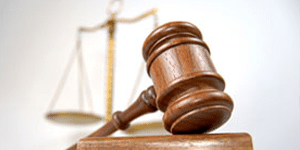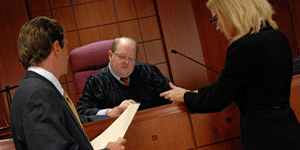Estate Planning
Comprehensive Estate PlanningEstate Planning
Estate Planning is the area of the law which deals with putting property to the best possible use for your benefit during your lifetime and for the benefit of your “beneficiaries” after your death. If the estate has been well planned, your assets should be distributed according to your wishes at a minimum of time and expense.
Estate Plans have multiple components. The components used within your Estate Plan depend on your financial and personal circumstance along with how you intend for your assets to be managed while alive and deceased.
Regardless of your personal situation, an Estate Plan should have at a minimum:
Definitions
Here is a quick definition of each of the elements of an Estate Plan:
A Living Trust
The document that states how your assets are distributed upon your passing.
Your Will
This is a “safety net” to your Trust, If something is not within your Trust, you can specify how it is distributed within your Will.
Property Agreements
If you are married, this document defines how property is characterized within your trust.
A Durable Power of Attorney for Property and Personal Affairs
This states how you wish for your property and personal affairs to be managed in the event of your incapacitation.
Your Advance Health Care Directives
This states who are your Health Care Agents and specifies instructions to an assigned Health Care Agent.
Authorization for Release of Medical Information
(HIPAA Waiver) This states who has authority to access your medical records.
Practice Areas
Estate Planning
Estate planning is the process of establishing a Trust, Will, Durable Power of Attorney, and other related documents during your lifetime.
Estate Administration
Probate
Probate is the legal proceeding supervised by the Superior Court used to transfer title to assets when a person is deceased.
Estate Litigation

Advanced Estate Planning
Families with substantial estates require additional strategies beyond a typical Estate Plan to reduce and offset Estate Tax liabilities.

Conservatorship
Our Locations
The quickest way to get assistance is to contact us directly at 310-316-2400 or by emailing us at info@ledwitzlaw.com.
Life Events

New Families

Nearing Retirement

Recent Loss
Recent Blogs
3 Ways to Avoid an Estate Planning Scam
a few minutes ago CHICAGO, Illinois – Every time you turn on the news, it seems like there is a new scam making headlines. By now, we’re all familiar with Bernie Madoff and his infamous Ponzi scheme. Many people have also heard about the “grandparent...
Eight Common Estate Planning Objectives Of Married Couples
As the previous posts demonstrate, estate planners still struggle with how to structure estate plans for married couples in order to accomplish both the tax and nontax objectives of such couples. Introducing the portability election into the arena has only made such...
So You Have Been Named Executor of An Estate – What Does It Mean?
An executor is a person named by a Will in charge of wrapping up the decedent’s estate and making sure that the wishes of the decedent are followed. Often, people name close friends or relatives as executors of their estate, reflecting on that person’s...
Client Reviews
As Seen in...

Awards, Certifications and Accolades






